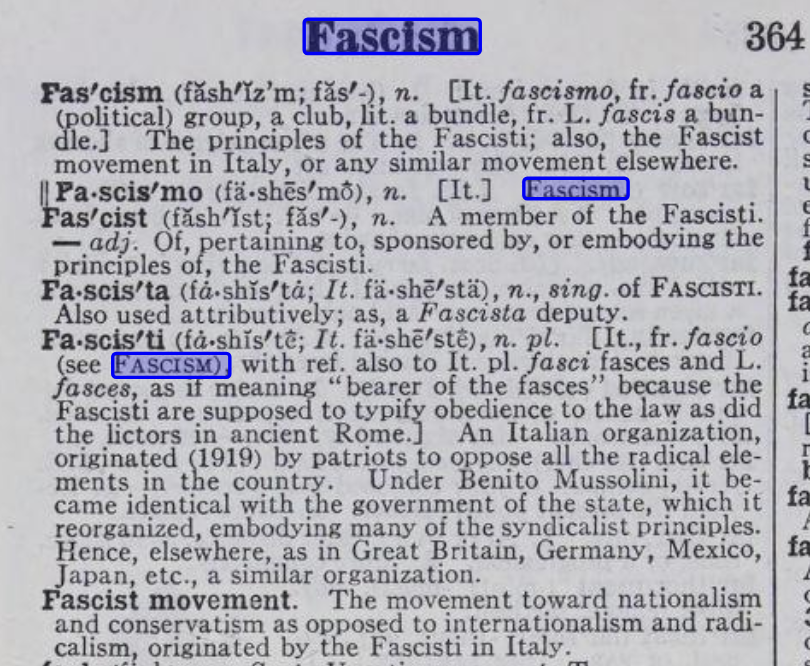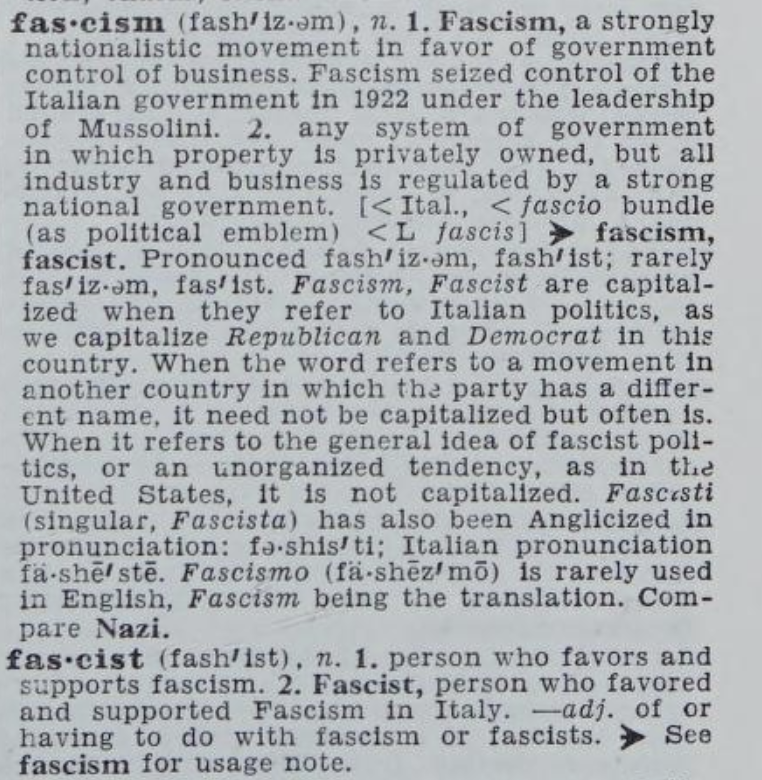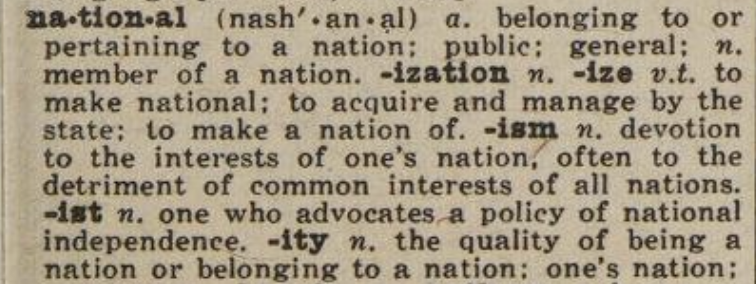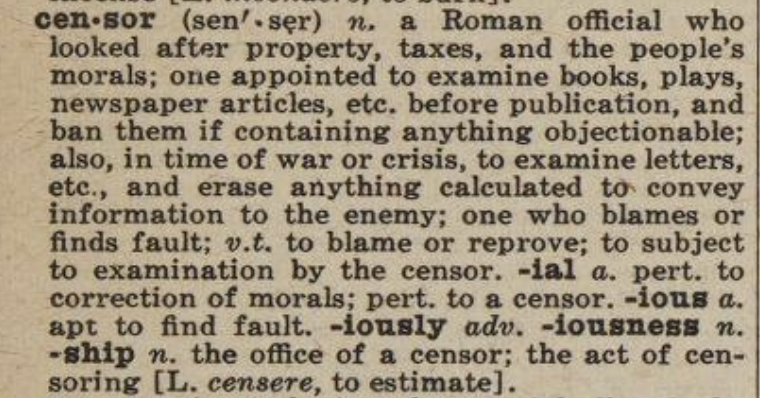Fascism
I hear this word thrown out a lot, but very few people can really define it. I recently watched a discussion by Casey Putsch on the changing definition of the term, and of course I had to look it up. I couldn’t confirm most of the dictionaries he used (I didn’t have $200 to buy a used copy right now, though maybe I should find that money), so the 1954 and 1961 images are from screenshots he shared. Naturally, as part of CriticalThinking I wanted to see for myself.
Casey’s sources
Fas’cism, n.
From the Italian fascisimo… a (political) group, a club…
1 : [often cap.] the principles of the Fascisti; also, the movement or governmental regime embodying their principles.
2 : any program for setting up a centralized autocratic national regime with severely nationalistic policies, exercising regimentation of industry, commerce, and finance, rigid censorship, and forcible suppression of opposition.
Source: Webster’s New International Dictionary, Second Edition, Unabridged. G. & C. Merriam Company, Springfield, Mass. 1954. Note that books published before 1970 don’t have an ISBN.
This definition is interesting given that it is less than a decade after the end of World War II.
The key features:
- Centralized autocracy
- “Severely” nationalistic
- Regimentation of industry, commerce, and finance
- Rigid censorship
- Forcible suppression of opposition
The 1961 update
The 1961 edition expands the definition; moving the previous 2nd definition to 2 a.
Fas’cism, n.
From the Italian fascisimo… a (political) group, a club…
1 : [often cap.] the principles of the Fascisti; also, the movement or governmental regime embodying their principles.
2 a : any program for setting up a centralized autocratic national regime with severely nationalistic policies, exercising regimentation of industry, commerce, and finance, rigid censorship, and forcible suppression of opposition b : any tendency toward or actual exercise of severe autocratic or dictatorial control (as over others within an organization)
“Modern” definitions
It’s interesting to compare these older definitions to modern definitions:
fas·cism, n.
an authoritarian and nationalistic right-wing system of government and social organization. (in general use) extreme right-wing, authoritarian, or intolerant views or practice.
The term Fascism was first used of the totalitarian right-wing nationalist regime of Mussolini in Italy (1922-1943), and the regimes of the Nazis in Germany and Franco in Spain were also fascist. Fascism tends to include a belief in the supremacy of one national or ethnic group, a contempt for democracy, an insistence on obedience to a powerful leader, and a strong demagogic approach.
We see that fascism is now politically aligned. The Wikipedia article (as of February 7th at 18:11 UTC).
Fascism (Wikipedia)
Fascism (/ˈfæʃɪzəm/ FASH-iz-əm) is a far-right, authoritarian, ultranationalist political ideology and movement, characterized by a dictatorial leader, centralized autocracy, militarism, forcible suppression of opposition, belief in a natural social hierarchy, subordination of individual interests for the perceived good of the nation or race, and strong regimentation of society and the economy.
My research
I signed up for an account on archive.org so I could borrow some of their dictionaries, looking for any dictionaries published between 1935 and 1958 — essentially, after the world had some time to come to know Fascism, and time for the dictionaries to be updated.
First, the 1937 Webster’s Collegiate Dictionary, 5th edition. Note that this is the 1945 printing.

Webster’s Collegiate Dictionary, Fifth Edition. G&C Merriam Co, Springfield Mass., 1937.
In Webster’s dictionary from 1958, we have
This book is not published by the original publishers of WEBSTER’S DICTIONARY, or by their successors.
This definition is pretty close to the 1954 version that Putsch put out.
From a less reputable dictionary:

Barnhart, Clarence L, Ed. Comprehensive Desk Dictionary. Doubleday & Company, Inc. Garden City, New York. 1955. Perhaps not as reputable as the Oxford dictionary, but interesting nonetheless.
Based on this research, I have pretty high confidence in the accuracy of the definitions that Putsch found.
Following up on definitions
- autocracy

- nationalist

- censorship

